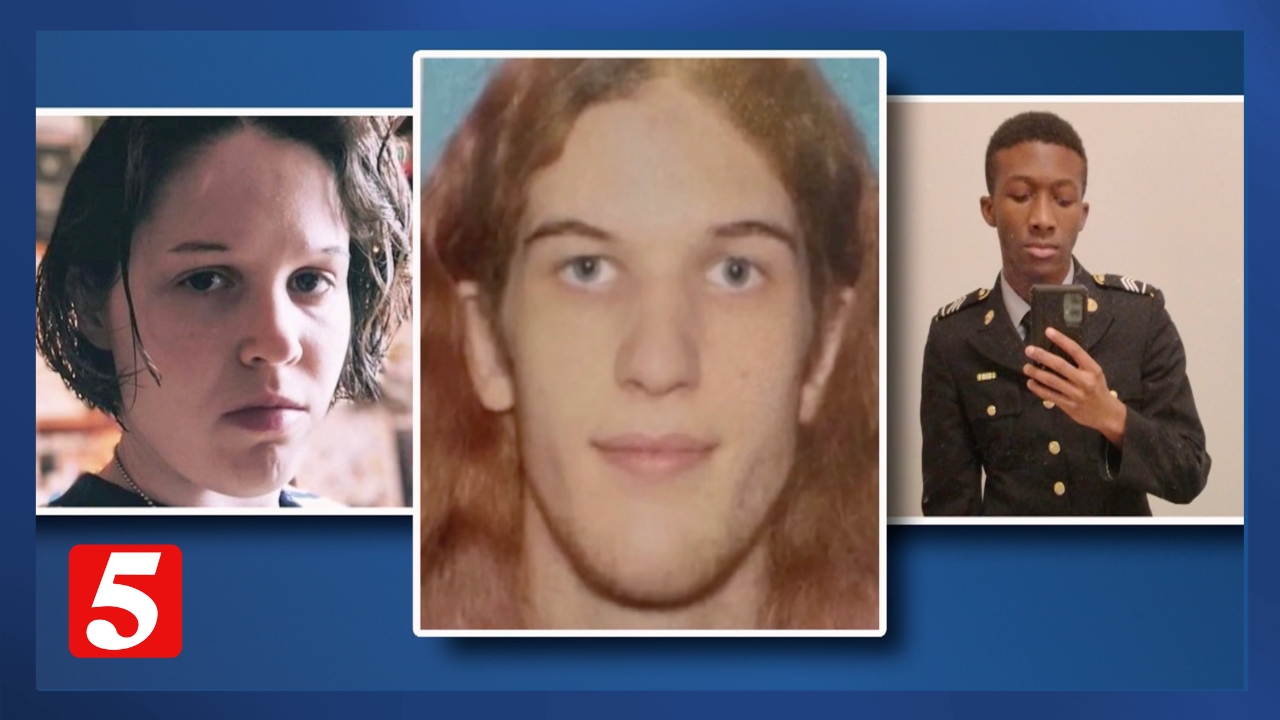MINNEAPOLIS — As growing memorials line the outside of Annunciation Catholic Church in Minnesota, the scene paints an all too familiar memory for those in Nashville who've witnessed tragedies unfold over the past two years.
Minneapolis Police called it a deliberate act of violence against innocent children after two children lost their lives, two others remain in critical condition, and more than a dozen others were injured in the hail of gunfire on Wednesday morning.
The shooter, 23-year-old Robin Westman – born Robert – posted now since deleted videos less than an hour before pointing a gun into the church and opening fire on unsuspecting kids.
"I'm sorry to my family, but that's it, that's the only people I'm sorry to," Westman is allegedly heard saying in the video.
Lauren Ruth Martin, a licensed therapist with Novel Counseling in Nashville, said what she saw in Westman's writings almost mirror some of the same hopelessness, hate and loneliness written by Solomon Henderson – the Antioch School shooter – and Audrey Hale, the Covenant School shooter.
Henderson shot two classmates, killing Dayana Escalante in January of this year, before turning the gun on himself. He also posted videos, a diary, and a manifesto online moments before the shooting.
Hale shot and killed three students and three staff members before she was gunned down by police in the 2023 attack.
"We're not trying to measure anybody's level of suffering to try to say that this one is worse than the other, but it's the idea of this as a recurring issue that hasn't stopped," Martin said.
The writings alone showed all three idolized school shooters while they planned their attacks for weeks, if not months.
Hale wrote, "I want my massacre to end in a way that Eric and Dylan would be proud of.”
All three either attended or once attended the schools they attacked, and all three went to great lengths to document as much as they could, leading up to the day they ended lives, including their own.
There's been no indication that Westman targeted any one person or staff member in the shooting, and the same could be said about Hale and Henderson in their attacks.
What may have set Westman apart was a letter that Martin said read more like a suicide note than a manifesto, telling her parents they didn't fail her and that loved ones should just forget about her and move on.
"That's what's really surprising to me, is that this did not read like somebody that was out to kill," Martin said.
In contrast, both Henderson and Hale described poor and even abusive relationships with their parents.
Henderson wrote about contemplating killing his parents, before later changing his mind.
Martin, however, said it's not uncommon for someone like Westman to write what they believe the reader will want to hear while harboring far more deadly intentions.
Hate-filled messages found on weapons
Westman's arsenal included hate-filled rhetoric and antisemitic messages written on virtually every firearm. Not unlike the hate that filled Henderson's 288-page diary, where his first entry reads: "I'm burning with hate. Hate will change the world. Race mixing is a sin against God."
Among Henderson's photos posted are selfies where he poses with an image of Adolf Hitler and where he has his fingers shaped to create a white-power symbol.
While Hale may not have shared the same feelings, all three appeared to be at odds with either their race or the gender they were assigned at birth.
By the end, they all described spiraling out of control and losing faith in a world they felt could never understand their pain.
Access to firearms remains key concern
Martin said if we're searching for solutions, then how these three still had access to firearms must be part of the conversation.
"I'm not saying that justifies anything that happened or any harm that one has done, but that is a vulnerability factor that if unaddressed, if unmanaged, plus access will lead to more violence," Martin said.
Westman and Hale legally purchased their firearms, and it's not clear at this point if there was a documented history of mental health issues with Westman, as there was with Hale.
We expect to hear more about those details as the FBI continues its investigation.
Warning signs and intervention
In the meantime, Martin said if you do notice any unusual behavior with someone you care about, it's okay to ask questions and be direct.
"As therapists, we are trained that if somebody is feeling suicidal, we don't skirt around the issue. We say, 'Hey, the way that you're acting sounds like you wanna die. Is that how you feel,'" Martin said.
Martin admits there's an art to asking these questions, and it may feel uncomfortable, but it may just give an outlet for someone to share how they feel.
Coping with vicarious trauma
You too may be overwhelmed with emotions, and Martin said it's common to feel a sense of grief, even if you weren't personally impacted. That said, she said what's important is finding a resource to help cope with that grief, so it doesn't go unmanaged.
"We still have permission to grieve. We still have permission to feel that fear because that's almost like survivor's guilt. It's vicarious trauma. Every time we open our phone, we're seeing these things, and we're being fed. Tragedy after tragedy with not a lot of repairs," Martin said.





